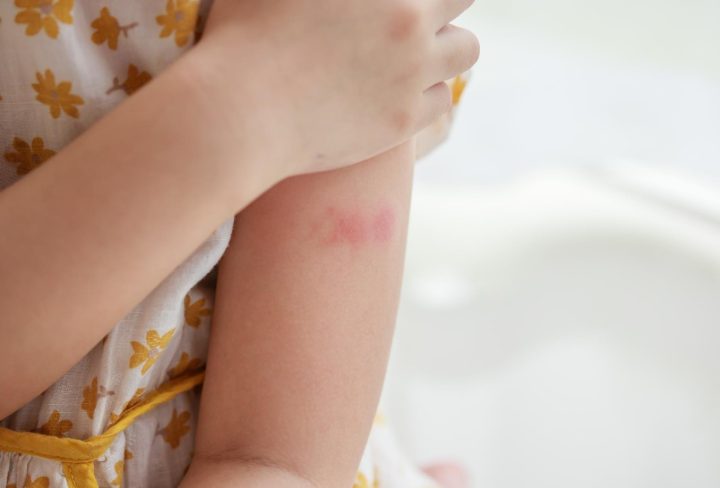Introduction:
Eczema, also known as atopic dermatitis, is a common skin condition that affects millions of people worldwide. It can be uncomfortable and sometimes unsightly, causing itchy, red, and inflamed skin patches. In this blog, we will explore eczema in detail, discussing its symptoms, treatment options, underlying causes, and different types to help you gain a better understanding of this condition.
Symptoms of Eczema:
Eczema symptoms can vary from person to person, but some common signs include:
Itchy Skin: The hallmark symptom of eczema is intense itching. This itching sensation can be overwhelming, leading to a constant urge to scratch the affected areas.
Redness and Inflammation: Eczema patches often appear as red, swollen, and inflamed areas of the skin. In some cases, the affected skin may develop blisters, crusts, or scales.
Dry and Sensitive Skin: Eczema-prone skin tends to be dry, rough, and easily irritated. It may also become more susceptible to certain substances or environmental factors, such as detergents, allergens, or extreme temperatures.
Thickened Skin: Prolonged scratching or rubbing of the affected areas can lead to thickening of the skin, a condition known as latensification. This thickened skin may appear darker or rougher than the surrounding skin.
Treatment Options for Eczema:
While there is no cure for eczema, various treatment options are available to manage the symptoms and prevent flare-ups. Here are some common treatment approaches:
Moisturisers: Regularly applying moisturisers can help hydrate the skin and alleviate dryness, reducing the risk of eczema flare-ups. Opt for fragrance-free and hypoallergenic moisturisers to minimize irritation.
Topical Corticosteroids: These anti-inflammatory medications are often prescribed to reduce redness, itching, and inflammation associated with eczema. They come in different strengths, and the choice of steroids depends on the severity and location of the eczema.
Topical Calcineurin Inhibitors: Medications like tacrolimus and pimecrolimus can control eczema symptoms, especially in sensitive areas like the face and groin. They work by modulating the immune response in the skin.
Antihistamines: Oral antihistamines may be recommended to relieve itching. These medications can cause drowsiness, so it’s essential to follow the prescribed dosage and consult a healthcare professional.
Wet Wrap Therapy: This therapy involves applying a layer of moisturiser or topical medicine on the affected areas and covering them with damp bandages or clothing. It helps lock in moisture and enhances the absorption of the medication.
Phototherapy: Also known as light therapy, this treatment involves exposing the skin to controlled amounts of ultraviolet light. It can help reduce inflammation and alleviate eczema symptoms but should be performed under medical supervision.
Causes of Eczema:
The exact causes of eczema are still unknown, but it is believed to be a combination of genetic and environmental factors. Some common triggers and risk factors associated with eczema include:
Genetics: People with a family history of eczema, asthma, or hay fever are more likely to develop the condition. Specific gene mutations are thought to contribute to an impaired skin barrier system and an overactive immune response.
Allergens: Exposure to pollen, dust mites, pet dander, or certain foods can trigger eczema symptoms in susceptible individuals. Identifying and avoiding these triggers can help control the condition.
Irritants: Soaps, detergents containing harsh chemicals, and certain fabrics can irritate the skin and trigger eczema flare-ups. It is essential to use gentle, fragrance-free products and wear breathable clothing to minimize irritation.
Climate and Temperature: Extreme temperatures, high humidity, or dry environments can worsen eczema symptoms. Maintaining a comfortable and consistent temperature in your surroundings can help alleviate flare-ups.
Types of Eczema:
Eczema can manifest in different forms, each with its unique characteristics. Some common types of eczema include:
Atopic Dermatitis: This is the most common form of eczema, often associated with a family history of allergies and asthma. It usually begins in childhood and can continue into adulthood.
Contact Dermatitis: This type of eczema occurs when the skin directly contacts irritants or allergens, leading to localized inflammation. Contacting your skin with certain metals, cosmetics, fragrances, or plants can cause it.
Dyshidrotic Eczema: Dyshidrotic eczema primarily affects the hands and feet, causing itchy small blisters. It is more common in women and can be triggered by stress or exposure to certain metals.
Nummular Eczema: Nummular eczema appears as coin-shaped patches of irritated skin that can be extremely itchy and tender. It often occurs after an injury to the skin and can be exacerbated by dry weather.
Conclusion:
Eczema is a chronic skin condition that can significantly impact a person’s quality of life. While there is no cure, proper management through required treatments and identifying and avoiding triggers can help control symptoms and prevent flare-ups. If you suspect you have eczema or are experiencing any of its symptoms, it is essential to consult a dermatologist for an accurate diagnosis and personalized treatment plan. At Cutis, we offer the best eczema treatment in Bangalore. Don’t hesitate to reach out to us for healthier, more comfortable skin.

